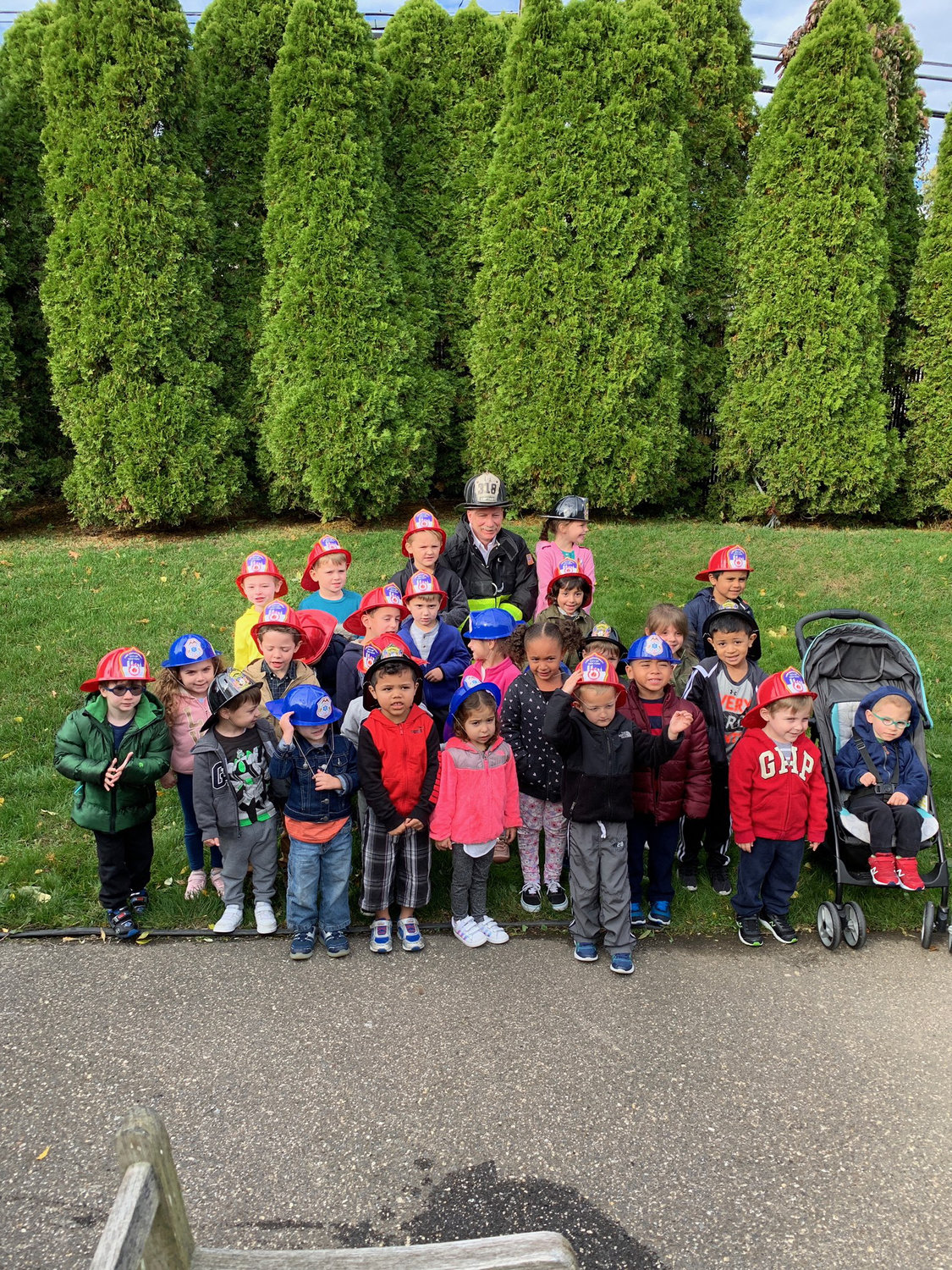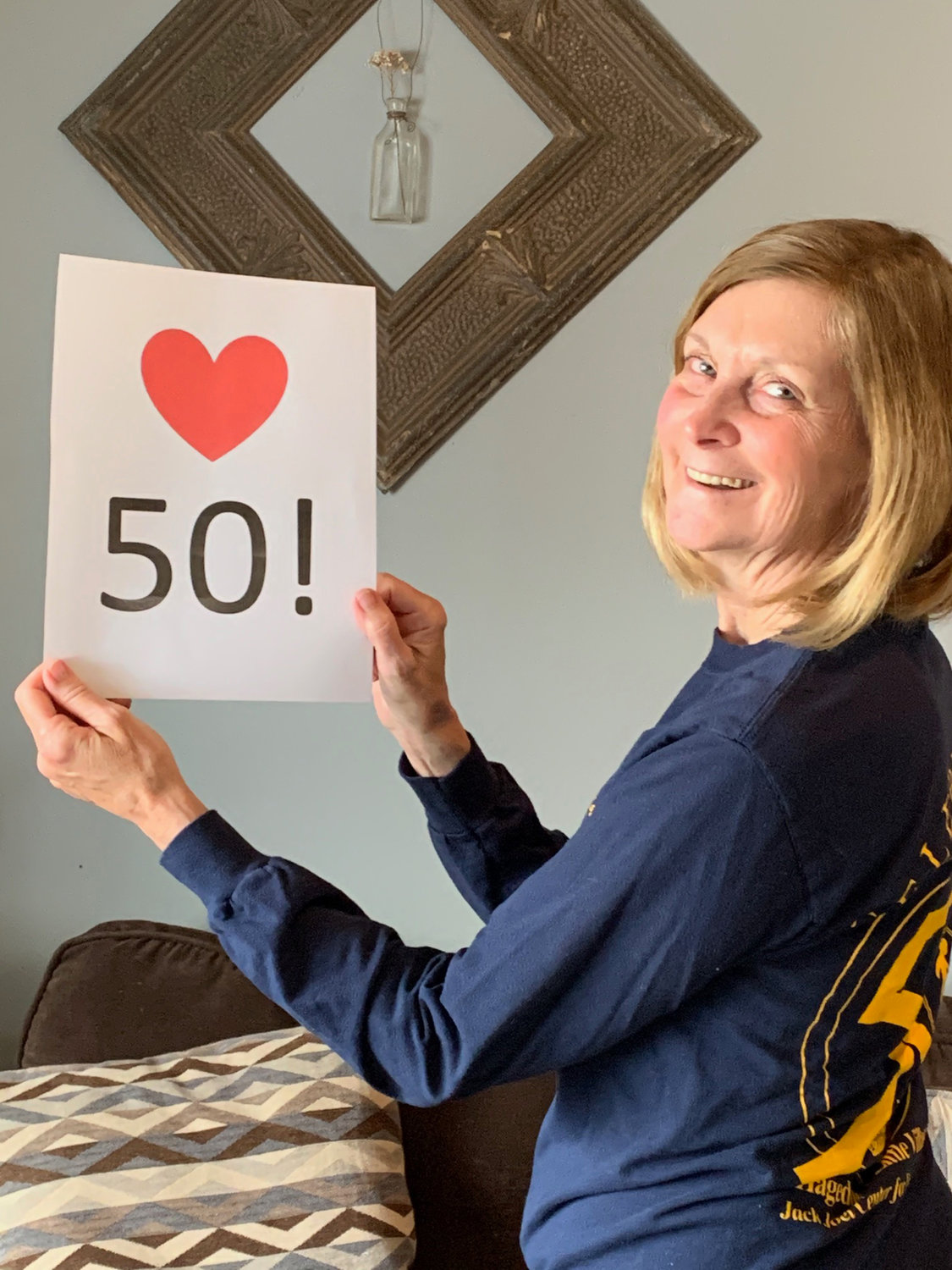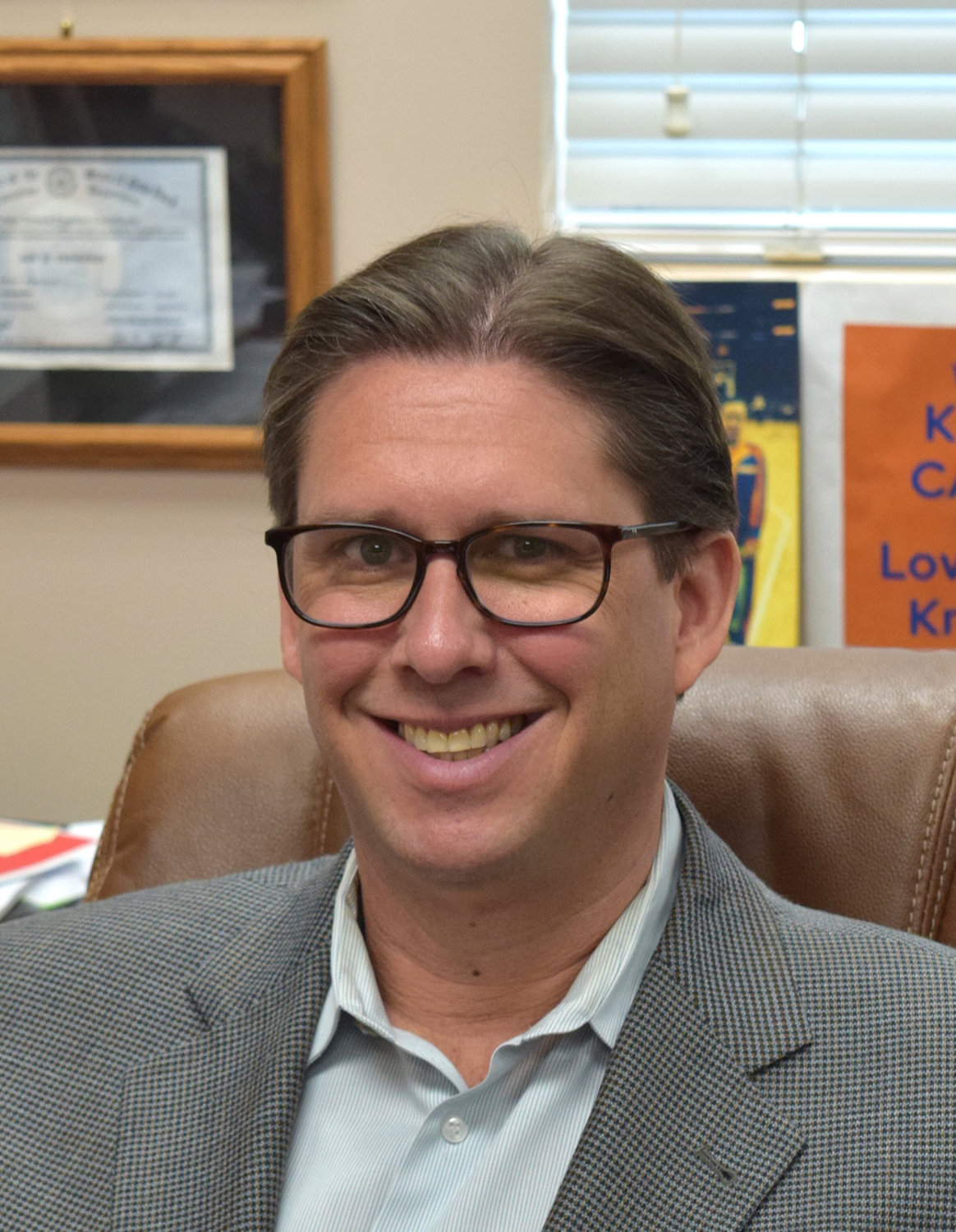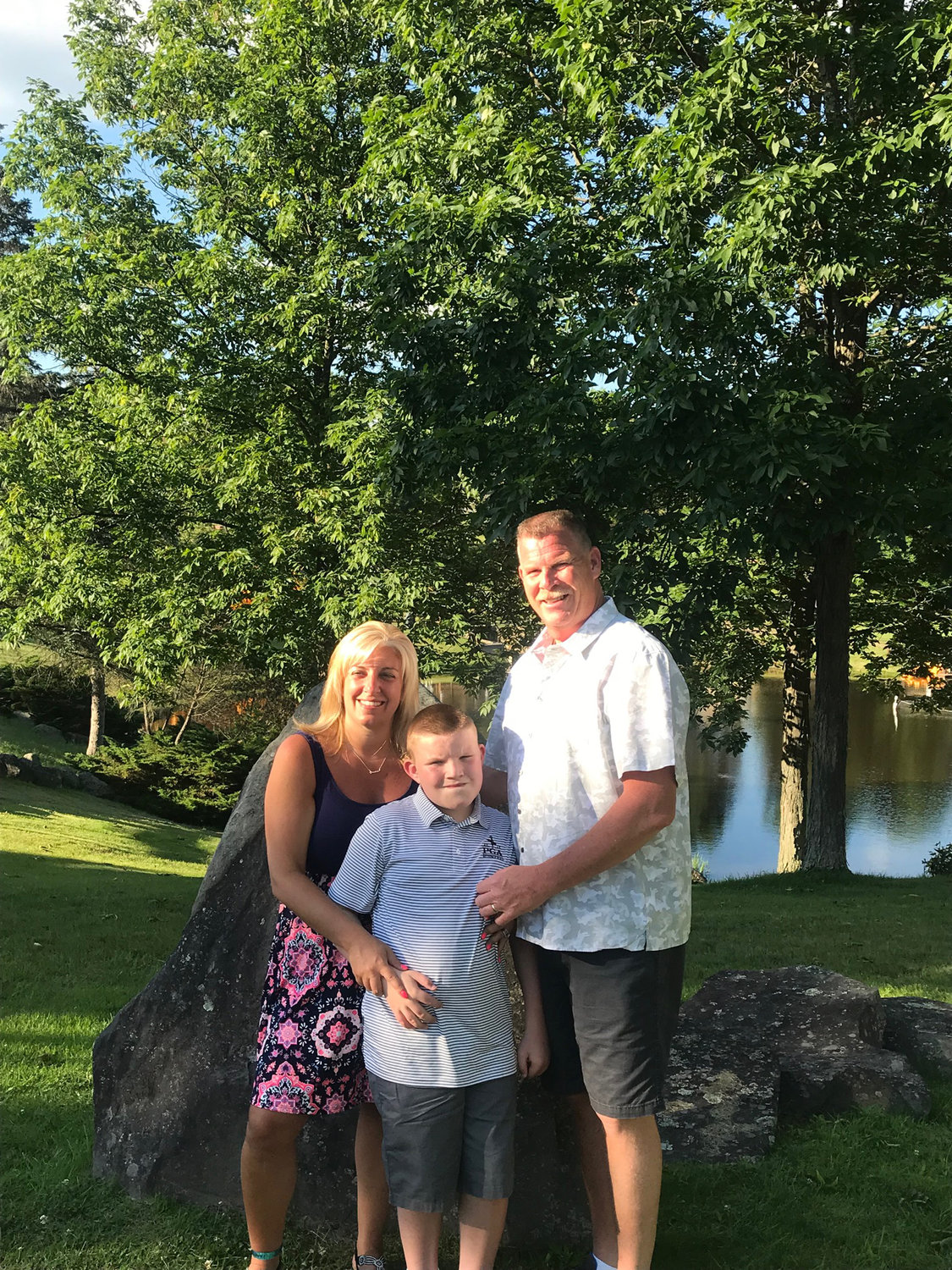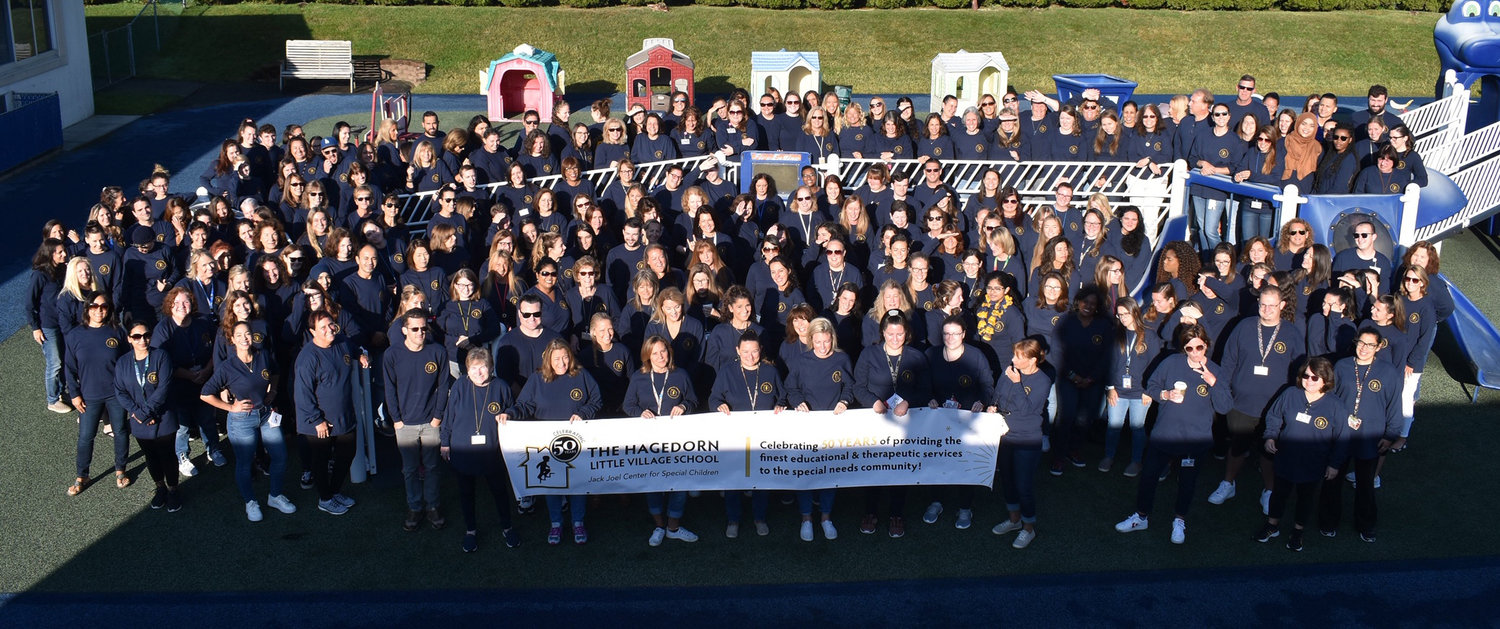The Hagedorn Little Village School celebrates 50 years
Even in the most disordered of times, birthdays are celebrated, anniversaries and weddings observed and beginnings and endings bring rejoicing or tears. So the coronavirus pandemic isn’t stopping the Hagedorn Little Village School for Special Needs, in Seaford, from celebrating its 50th year.
Founded in 1969 by Dr. Carol Banks and Dr. Barbara Feingold, two psychologists specializing in educating children with developmental disabilities, the school began with one room and just three students.
The founders believed that schools of the day did not provide enough individualized instruction for special-needs students, and that they would benefit from the pre-K programs often available to other children, but rarely on offer to those with special needs, according to Jon Feingold, the school’s director and school psychologist, and Barbara Feingold’s son.
Now, the campus on Hicksville Road serves more than 400 children, ages 2½ to 12, on site, as well as homebound children and those who live too far away to come to the school. In all, it serves more than 1,200 families in 50 districts, from New York City to Suffolk County, including students in the Seaford, Wantagh and Levittown districts.
“We have far more applicants than places,” said Principal Patti Pizza, who has been a member of the school staff for nearly 43 years.
The school has had a peripatetic existence, starting in Baldwin, then moving to Merrick, Garden City, Bellmore and finally Seaford, as the expanding student body needed more space, according to Jon Feingold.
Because of its students’ needs, the school holds classes all year round. Most consist of small groups or one-on-one sessions. “We have students with physical, emotional and cognitive disabilities,” Pizza said, “and that requires a wide range of approaches.”
The challenges are substantial, even in normal times. Now that students and teachers are working from home, the technological challenges alone are enormous.
“We use the same tools most schools use for a lot of our classes,” Pizza said, mentioning Zoom, FaceTime, Facebook and Instagram, “but it’s been especially difficult for students who need physical therapy.” In those cases, she added, “we have to depend on the parents even more than usual.”
The school has also deployed Eye Gaze technology for students who are unable to communicate either orally or via sign language.
Parents have had to take a more active role in home-schooling, and this has put added pressure on families. For parents of children in need of physical therapy, for example, this has meant taking on the role of therapist, using the detailed plans for therapy sessions that the school provides. Members of the staff guide parents remotely.
Some parents have set up home classrooms similar to those at school, according to Pizza. “The parents have become excellent educators themselves,” she said.
To help keep spirits up, teachers have chosen themes for each week of the pandemic lockdown. For 50th-Anniversary Week, they devised lessons focusing on the number 50. Other themes included Rainbow Week and Therapist Week.
Because of the wide dispersion of the school’s student body, the parades that have become commonplace in other school districts are less frequent among Little Village students. “We’ve had a few small parades for individual students’ birthdays,” Pizza said, especially for very young students less able to understand the limits imposed by current conditions.
The school is a nonprofit corporation with an annual budget of about $19.5 million, according to Jennifer Kirincic, its director of development. Tuition is free, and the school receives reimbursement for 85 to 90 percent of its costs from federal, state and county authorities. The rest of the budget is raised through grants and private donations, Kirincic said. The Hagedorn name is the result of one such large donation, from the Port Washington-based Hagedorn Foundation.
Even under less trying circumstances, “we have the most incredible, dedicated staff you could imagine,” Feingold said. “They always go above and beyond.”
For example, several times a year, they offer parents “babysitting nights,” when parents can bring all their children to the school and have an evening to themselves. “The staff care for all the children, not only the school’s students,” Kirincic said.
The students have individual learning plans, which enable parents and staff to continually evaluate their progress — and help determine their next steps after Little Village.

